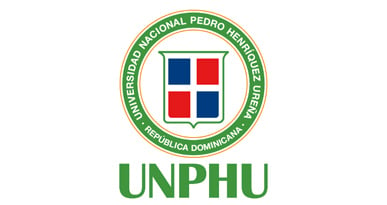Mostrar el registro sencillo del ítem
Hand hygiene perceptions, preferences, and practices among hospital staff in the Dominican Republic in the context of COVID-19: a qualitative study
| dc.contributor.author | Craig, Christina E | |
| dc.contributor.author | Schnorr, Charles D. | |
| dc.contributor.author | Then Paulino, Cecilia J. | |
| dc.contributor.author | Payano, Eulogia Cristina | |
| dc.contributor.author | Guzmán, Paloma Martínez | |
| dc.contributor.author | Ripkey, Carrie | |
| dc.contributor.author | de St Aubin, Michael | |
| dc.contributor.author | Dumas, Devan | |
| dc.contributor.author | Roberts, Kathryn W | |
| dc.contributor.author | Duke, William | |
| dc.contributor.author | Skewes-Ramm, Ronald | |
| dc.contributor.author | Lozier, Matthew J. | |
| dc.contributor.author | Nilles, Eric J. | |
| dc.date.accessioned | 2024-05-26T03:05:06Z | |
| dc.date.available | 2024-05-26T03:05:06Z | |
| dc.date.issued | 2024-06 | |
| dc.identifier.citation | Craig CE, Schnorr CD, Then Paulino CJ, Payano EC, Guzmán PM, Ripkey C, de St Aubin M, Dumas D, Roberts KW, Duke W, Skewes-Ramm R, Lozier MJ, Nilles EJ. Hand hygiene perceptions, preferences, and practices among hospital staff in the Dominican Republic in the context of COVID-19: a qualitative study. Infect Prev Pract. 2024 May 1;6(2):100367. doi: 10.1016/j.infpip.2024.100367. PMID: 38765916; PMCID: PMC11101936. | en_US |
| dc.identifier.issn | 25900889 | |
| dc.identifier.uri | https://repositorio.unphu.edu.do/handle/123456789/5672 | |
| dc.description.abstract | Proper hand hygiene (HH), which includes sanitizing with alcohol-based hand rub (ABHR) (or handwashing with soap and water if ABHR is unavailable), is key for preventing healthcare-associated infections (HCAI), including COVID-19. Understanding drivers of HH is key to improving adherence. Aim: This study aims to explore drivers and barriers to HH practice at two hospitals in the Dominican Republic in the context of the COVID-19 pandemic to inform development of HH behaviour change interventions. Methods: We conducted in-depth interviews with 20 hospital staff during September 2021. We used the COM-B (capability, opportunity, motivation, behaviour) model to explore HH experiences and preferences. Interviews were recorded, transcribed, coded, and analysed using a thematic approach. Results: A total of 11 parent codes and 27 sub-codes were identified, and 1145 coded segments were analysed. Use of handwashing with soap and water and/or sanitizing with ABHR was reported by all participants; handwashing was generally preferred. Participants expressed knowledge of proper HH methods (capability), but inconsistent supplies and lack of time presented HH challenges (opportunity). Interviewees described practicing HH to protect themselves and their families from COVID-19 and other infections (reflective motivation) or out of habit (automatic motivation). | en_US |
| dc.language.iso | en | en_US |
| dc.publisher | Elsevier Ltd | en_US |
| dc.relation.ispartofseries | Volumen 6;Issue 2 | |
| dc.rights | Attribution-NonCommercial-NoDerivatives 4.0 Internacional | * |
| dc.rights.uri | http://creativecommons.org/licenses/by-nc-nd/4.0/ | * |
| dc.subject | Higiene de las manos | en_US |
| dc.subject | Coronavirus | en_US |
| dc.subject | COVID-19 | en_US |
| dc.title | Hand hygiene perceptions, preferences, and practices among hospital staff in the Dominican Republic in the context of COVID-19: a qualitative study | en_US |
| dc.type | Article | en_US |


